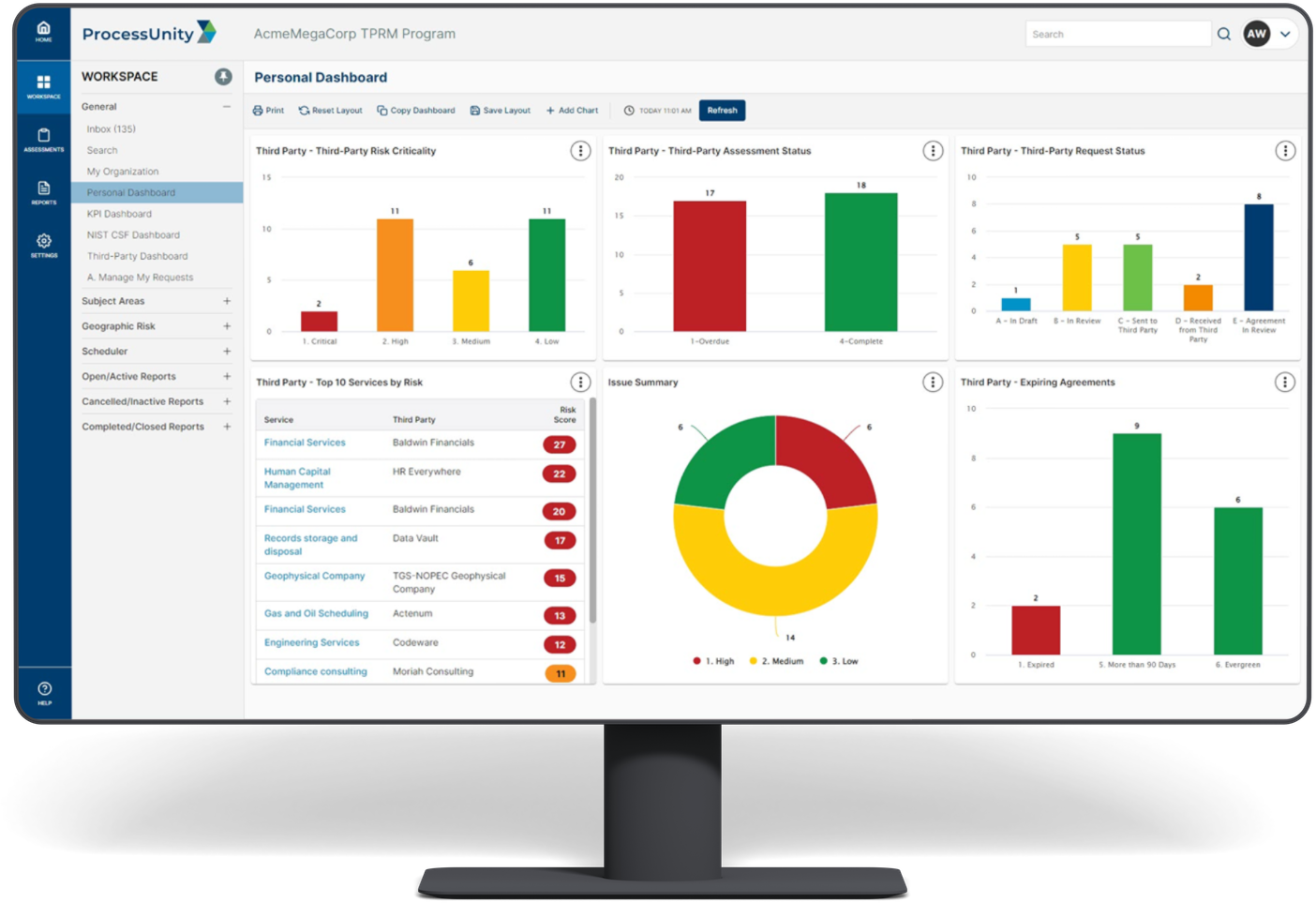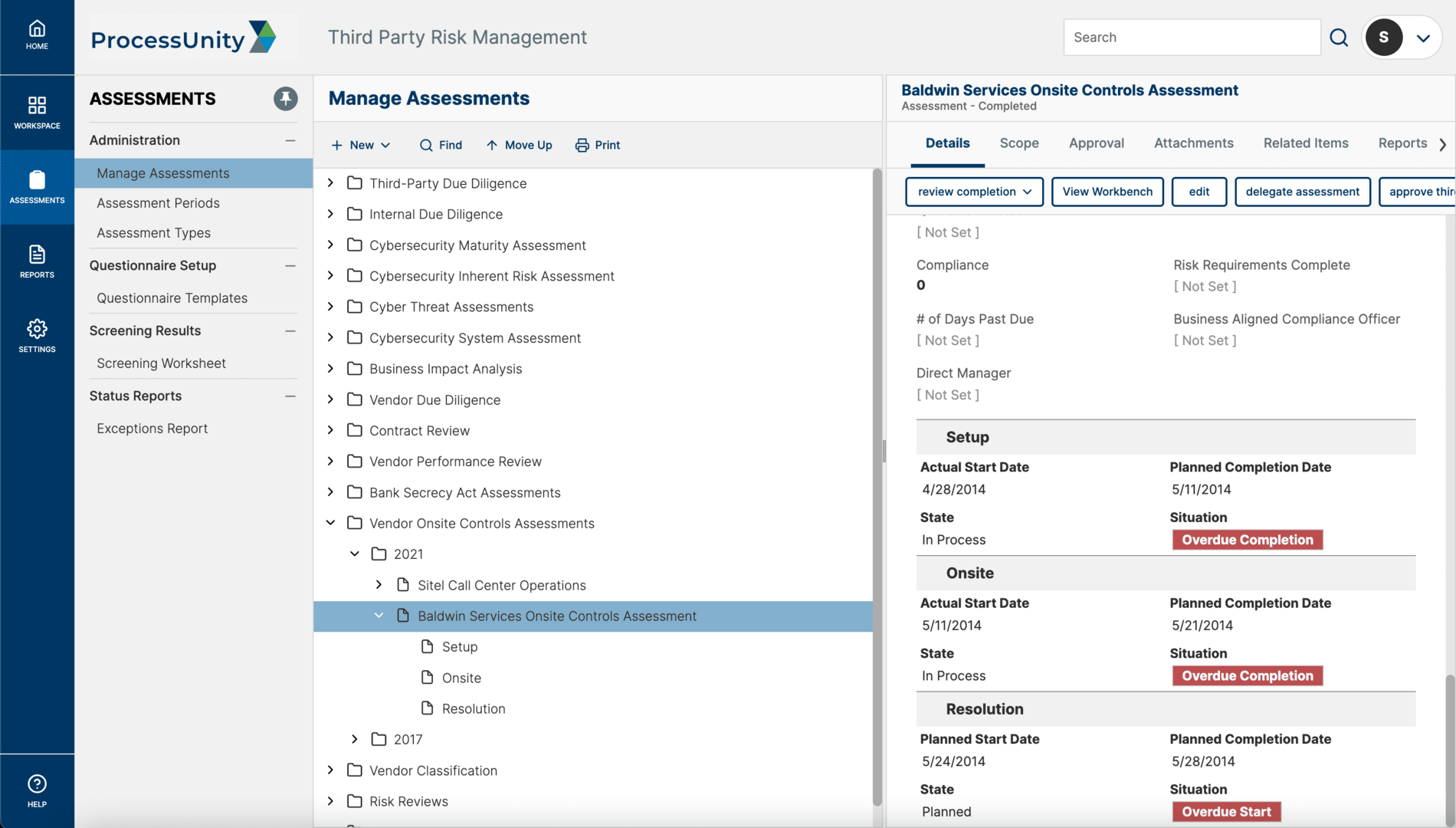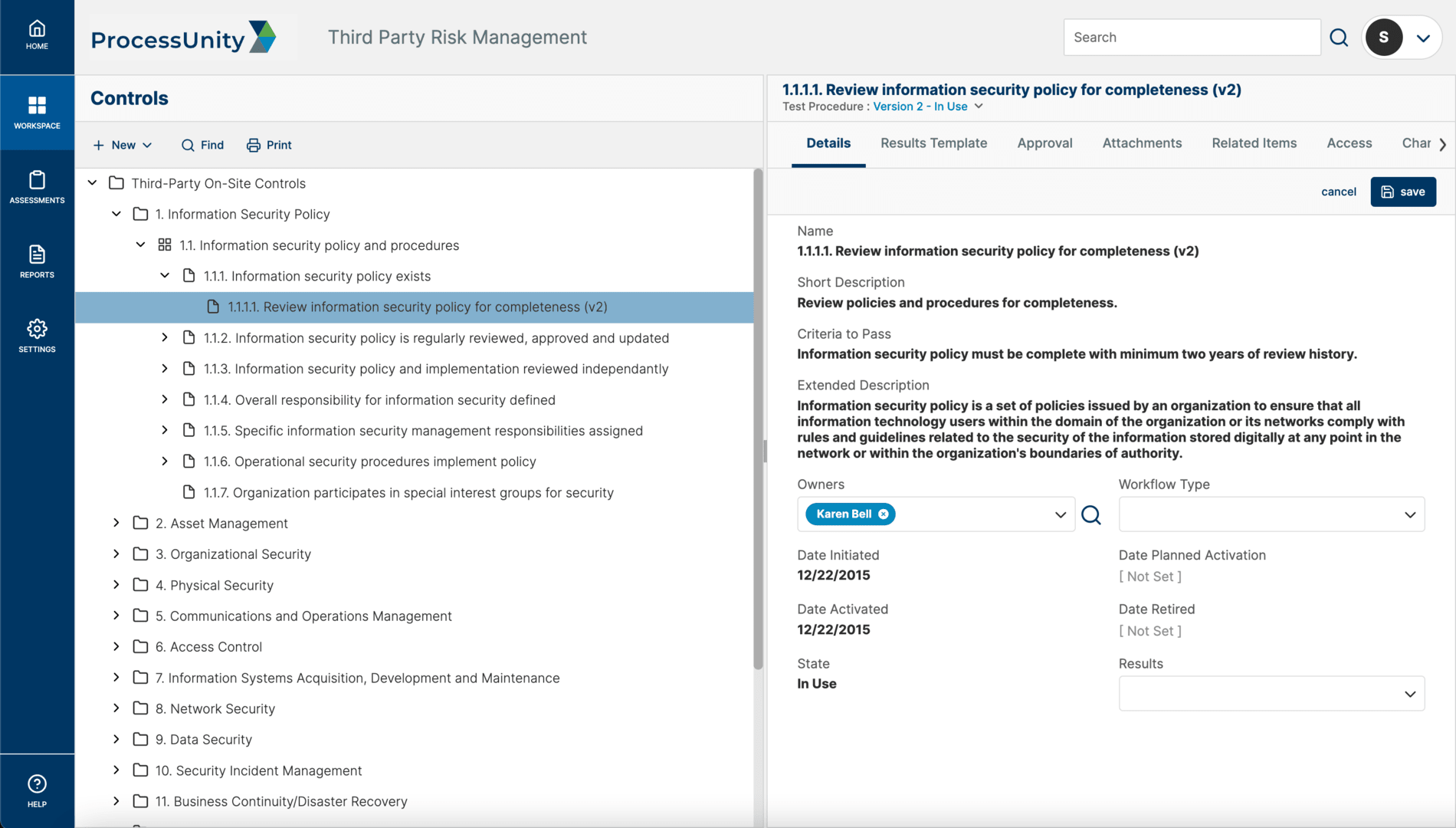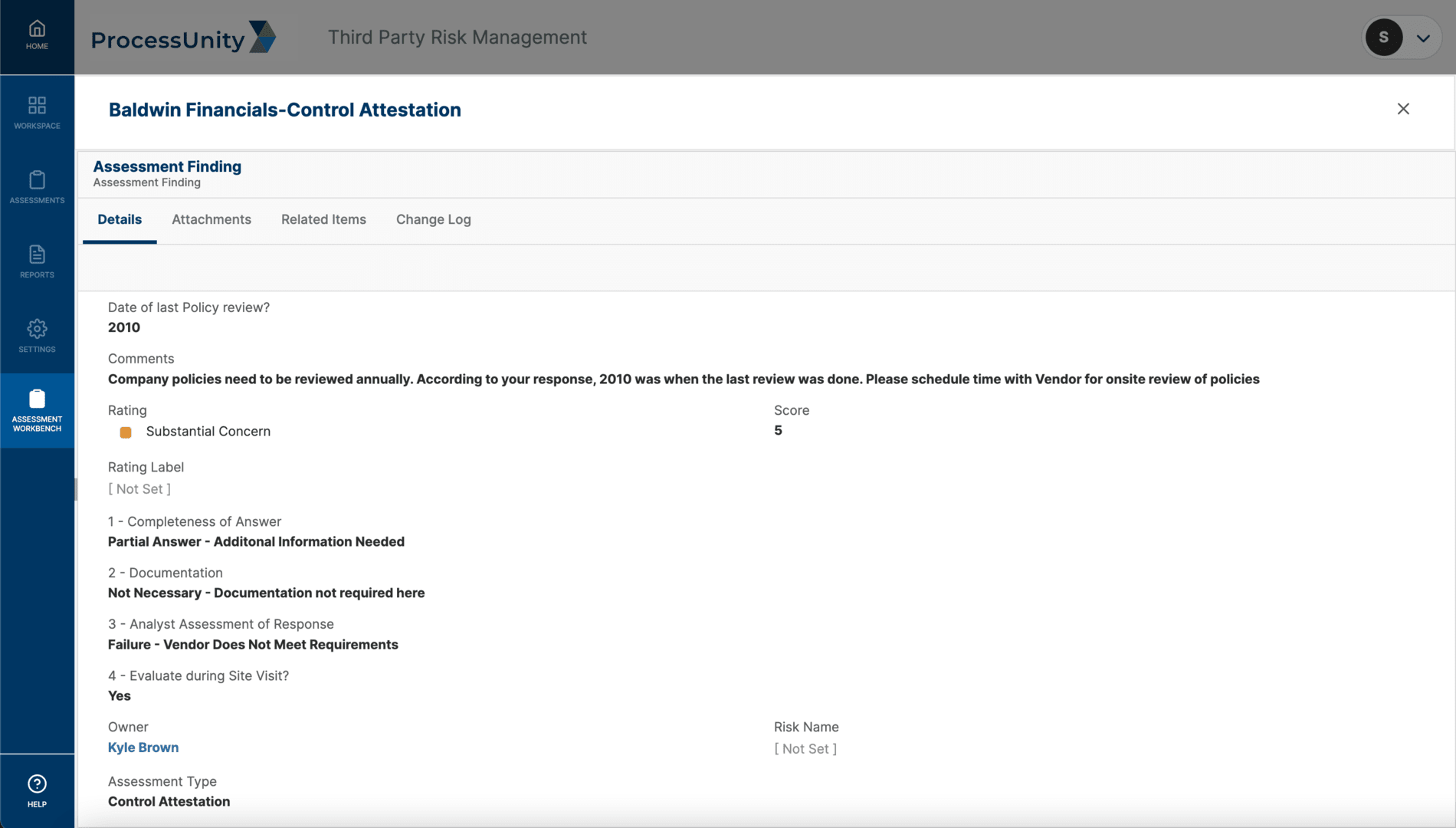Third-Party Risk Management Software
On-Site Vendor Control Assessments
At times, asking questions is not enough for vendor controls: when high risk vendors provide mission-critical functions, or have access to sensitive data, your organization may need to schedule on-site visits to make visual verification of compliance and contract conformance. ProcessUnity Vendor Risk Management empowers your assessment teams with everything they need to conduct and document on-site vendor control assessments.
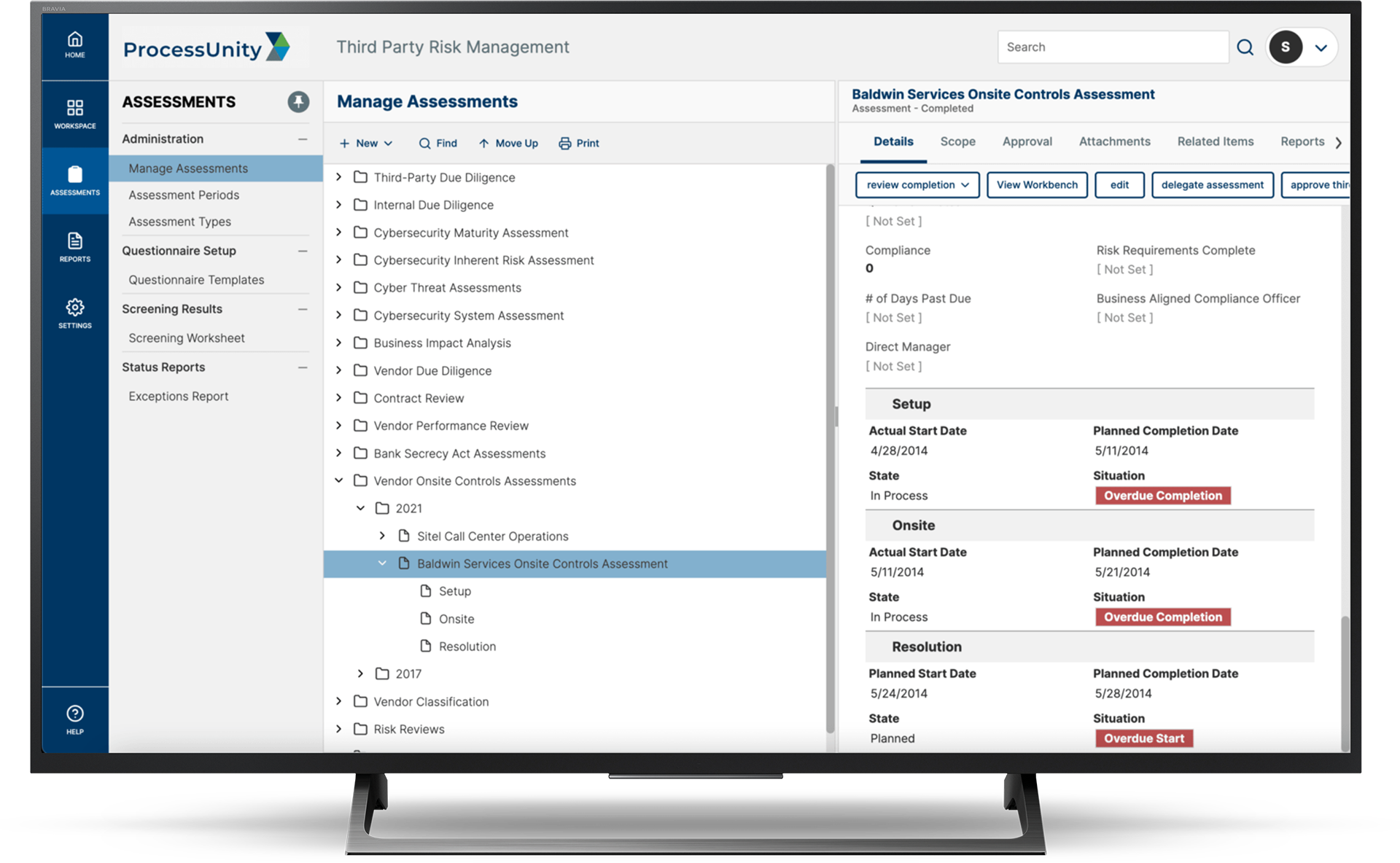
Control Libraries With Test Procedures
ProcessUnity VRM assigns the appropriate set of controls to your team depending on the services provided by the vendor. Test procedures can be prescribed to explain what needs to be done, what needs to be inspected, and how compliance should be measured, e.g., the temperature of a data center or the height of a server from the floor. These controls can also map to industry-standard frameworks such as NIST or CobIT.
Results Compilation
ProcessUnity compiles vendor control assessment observations into reports that are also rolled into the vendor’s risk profile, informing that vendor’s overall risk health score.
Request a Demo: ProcessUnity's Vendor Risk Management
Hundreds of organizations worldwide rely on ProcessUnity to make Vendor Risk Risk Management more effective and efficient. Schedule your personalized demo of our award-winning software and start your journey to a more mature, automated vendor risk management program today!
Request a Demo: ProcessUnity's Vendor Risk Management
